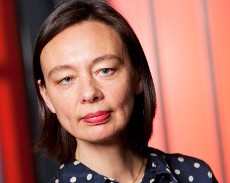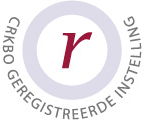Interview Leonie van Drooge

Valorisation empowers departments!
Leonie van Drooge is a senior researcher at the Rathenau Institute. She helps and advises scientific departments in implementing valorisation via case studies and workshops. She co-authored the ‘Waardevol’ report (translated ‘Valuable’), which gives a framework for economic and societal impact in all fields of science. “But there are a lot of misconceptions”.
“When scientists realise what valorisation means or can be, many conclude that they already do quite a lot. Most of my work is explaining and showing what economic and societal impact is or can be, to scientific departments and scientific institutions including NWO. There usually is a sense of relief among the participants in my workshops, when they realise some of their activities already fall within the definition of valorisation. Post-academic education is a form of valorisation, and so is giving advice to local government or sharing your expertise with a museum. More importantly, it empowers them to know what valorisation is, what is expected, what the opportunities are. It puts them in the driver’s seat and gives them control. Lastly, once they understand what it is or can be and start doing it, they see that such activities are fun! It is fun to talk with experts outside academia, it is fun to share knowledge, and it is fun to see applications arise from your scientific work. And the closer interaction with society can even spur scientific questions. For instance, it inspires scientists to further research when an HIV patient asks researchers ‘if my partner and me have HIV, can we infect each other with our viruses and thereby get double-infected?’
But I think there are a lot of misconceptions and counterproductive incentives. For instance, we must not expect every scientist to display valorisation activities. I think we should aim at department level and help them to invest time and energy into valorisation. And the message should not be ‘you must practice valorisation’ but ‘grab the opportunities’. We should not place quantitative indicators on the valorisation output of departments, but stimulate them to consciously put the topic on their agenda. And we have to find a way to avoid punishing scientists for investing time in valorisation: if the number of publications is (almost) the only thing that counts for a career, many scientists will not invest. Even visitation committees struggle with the assessment of valorisation. And the topic is urgent, since we are not doing too well, compared to other countries.
I am looking forward to debating all these issues with the audience”.

